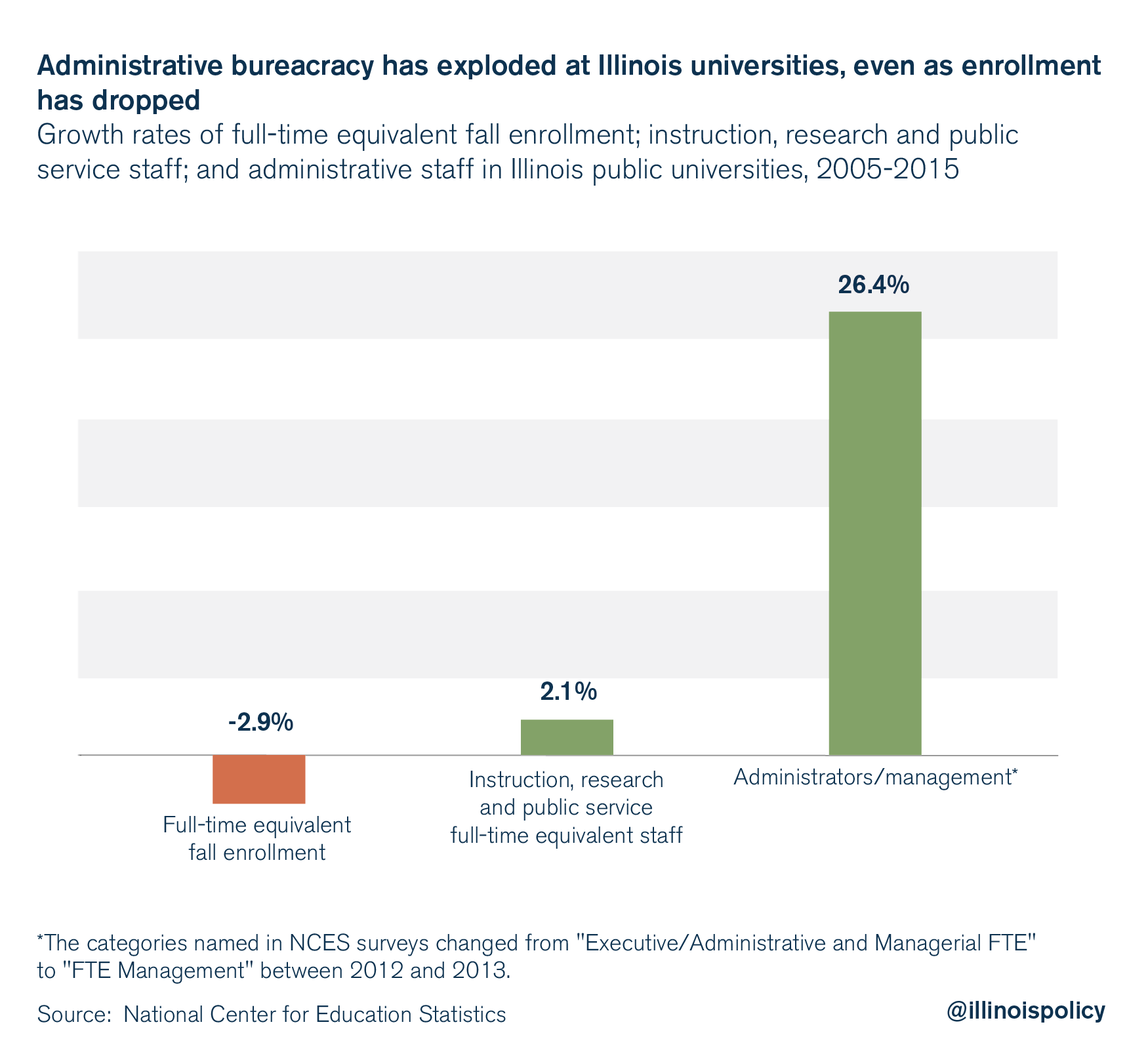Southern Illinois University chancellor urges administrative spending cuts
Despite objections from faculty, one university chancellor is pressing for a campus restructuring that includes curbing the tuition-heightening costs of administrative bloat.
Southern Illinois University, Carbondale Chancellor Carlo Montemagno has unveiled a plan to restructure the university’s academic programs. A core feature of the chancellor’s proposed plan underscores the need to minimize administrative costs and sharpen the university’s focus on teaching and curricula.
The plan calls for the elimination of SIU’s current department-based structure to be replaced by a system of colleges and schools within the university, thereby cutting down on administrative bloat.
Addressing the university’s fiscal priorities in a video posted on the university’s website, Montemagno said, “We are spending too much time and money on administration and not enough time on teaching and research.”
Montemagno’s goal is a welcome departure from the norm in Illinois higher education, where schools have prioritized costly administration over students for years.

Full-time equivalent administrator positions at Illinois public universities increased by 26 percent from 2005 to 2015, according to data from the National Center for Education Statistics. But full-time equivalent fall student enrollment dropped by almost 3 percent over that time. Further, teaching- and classroom-related functions, including instruction, research and public service full-time equivalent positions, increased by only 2 percent.
Montemagno’s proposed plan was a second-draft revision offered by the newly appointed chancellor after having faced criticism in response to an initial draft issued Oct. 19, according to the Southern Illinoisan. However, the central items of the plan that provoked backlash from fellow staff – administrative spending cuts as well as department elimination – have remained intact.
As the chancellor eyes July 1, 2018 to commence his structural overhaul, the plan’s final revision is set to be issued in Spring. The Graduate Council and Faculty Senate, in the meantime, are preparing their counter-remarks.
Of course, there’s little to gain from structural shake-ups for university administrators comfortably enmeshed in the current system. Due to ill-considered state policies concerning higher education funding, administrators have every incentive to defend the status quo – even at the expense of students.
An Illinois Senate Democratic Caucus report found that “While state operating support for public universities has declined by 7 percent over the last decade, the corresponding increase in tuition and fee revenue has not only offset state budget cuts, but sustained annual public university revenue growth rate in excess of 5 percent.”
Indeed, between 2006 and 2016, students at both SIU’s Carbondale and Edwardsville sites were squeezed by tuition growth of more than 90 percent.
The report concluded that “Much of this revenue growth has been used to support an increasingly larger bureaucracy and excessive administrative salaries.”
It isn’t the volume of funding that’s handicapping Illinois’ colleges and universities, but rather the destination of it. Indeed, a portrait of Illinois’ higher education spending shows over half of state dollars funneled to higher education has been swallowed by employee retirement costs since 2014 – up from less than 20 percent in 2006. Meanwhile, state funding devoted to higher education operations have shrunk steadily throughout the same period – capsized to merely 47 percent of spending as of 2015 – to make room for soaring retirement benefits.
But administrators need not wait for retirement to receive lavish compensation packages. The Illinois Board of Education database shows a large share of administrators earning base salaries reaching six figures in fiscal year 2017. For many at the top, base salary is only a piece of overall compensation, which can include housing allowances, bonuses, cars and club memberships.
It isn’t a coincidence that skyrocketing tuition and waning operations funding has coincided with historic growth in administration and retirement costs. And Montemagno’s recent conviction makes clear that SIU is no exception to this pattern.
When Montemagno previewed the proposal during his State of the University Address on Sept. 26, he ventured that the plan had the potential to “save the university $2.3 million in administrative costs,” according to the Daily Egyptian, the SIU student newspaper.
These savings alone won’t reverse generations of mounting administrative costs. But, if attained, the efforts ought to be welcomed as a necessary first step. Illinoisans – and future students – should hope Montemagno’s restructuring sparks a trend.